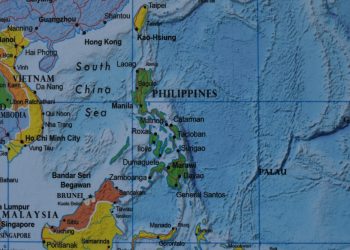Stakeholders’ commitment to ensure compliance in law and practice
 Labor and Employment Secretary Rosalinda Dimapilis-Baldoz said the Philippines marked the entry into force of the Maritime Labor Convention, 2006 with expressed solid commitments from all the maritime stakeholders to ensure compliance with the important Convention in law and practice.
Labor and Employment Secretary Rosalinda Dimapilis-Baldoz said the Philippines marked the entry into force of the Maritime Labor Convention, 2006 with expressed solid commitments from all the maritime stakeholders to ensure compliance with the important Convention in law and practice.
Acknowledging the role of ship owners, manning agencies, international organizations, such as the International Labor Organization (ILO), Recognized Organizations (ROs), local seafarers’ unions, such as the Associated Maritime Officers and Seafarers Union of the Philippines (AMOSUP), and seafarers themselves, in the realization of the MLC, 2006, Secretary Baldoz called for unity to ensure that the country and its more than 400,000 Filipino seafarers deployed overseas and almost 60,000 domestic seafarers benefits from the Convention.
The MLC, 2006 entered into force on 20 August 2013, one year after the Philippines deposited its instrument of ratification in the ILO in Geneva on 20 August 2012.
Baldoz cited as backdrop of her call for unity behind the MLC, 2006 the recent tragic accident in Cebu City involving the passenger vessel, St. Thomas Aquinas, and a cargo ship of Sulpicio Lines that resulted to 75 deaths and 45 persons still missing as of last count. About 750 passengers had been rescued from the ill-fated ship.
In her keynote speech at an event organized by the DOLE and the ILO and hosted by the AMOSUP in Intramuros yesterday to mark the entry into force of the MLC, 2006, Baldoz said:
“We mark the entry into force of the MLC, 2006 even as we continue to grieve for the victims of the sea tragedy in Cebu City. Initial investigation by the DOLE Regional Office No. 7 showed that both ships have no health and safety committee or safety officers. We have yet to ascertain the extent of compliance or non-compliance with labor standards and occupational health and safety by the two ships,” Baldoz said.
“This accident, coming at the heels of the entry into force of the MLC, 2006, emphasizes the need for all stakeholders and the government to move fast and stop loss of lives at sea by observing the right balance between ensuring decent work for seafarers and securing fair competition; and ensuring a level playing field for quality ship owners by offering them protection from being undercut by ship owners operating substandard ships or substandard working conditions for seafarers,” she explained.
Baldoz said she will meet again with Transportation and Communication Secretary Joseph Emilio Abaya, MARINA Administrator Maximo Mejia Jr. to discuss the government’s track on the matter just as they met on 4 June 2013 on the concern on competent authority in implementing the MLC, 2006.
In that meeting, Baldoz said the DOLE’s role in seafarers’ working condition and welfare is dictated by the explicit authority vested by the Labor Code upon the Secretary of Labor and Employment to administer and enforce workers’, including seafarers’, labor rights.
Baldoz recalled that the Philippines’s ratification of the MLC, 2006 was not only a big step for the global maritime industry, but also of tremendous importance to the country as a maritime nation.
“Dubbed as the seafarers’ international bill of rights, the MLC, 2006 is expected to provide protection to the approximately 400,000 Filipino seafarers deployed overseas, who comprise roughly 30 percent of the global maritime fleet, and to the almost 60,000 domestic seafarers,” Baldoz said.
The MLC, 2006 is a single, coherent international instrument that consolidates and updates fundamental principles and labor standards for seafarers, replacing 68 existing ILO maritime conventions and related recommendations and protocol adopted since 1920.
Read more about the Cebu ferry collision
|
Cargo ship in Cebu maritime tragedy in the wrong lane |





























































